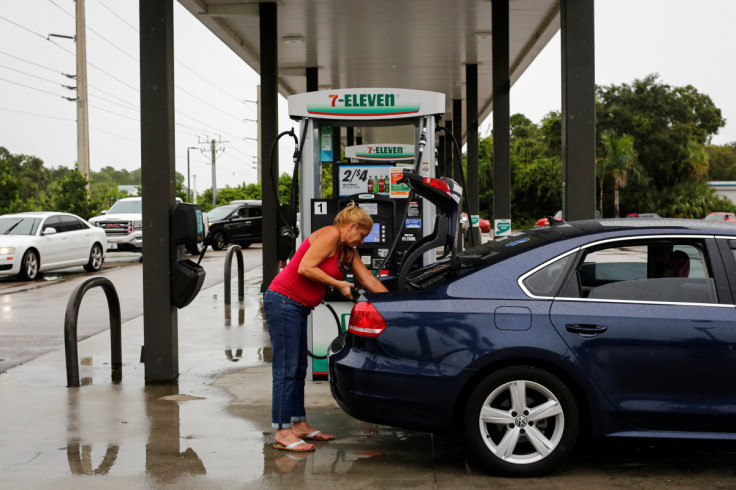Hurricane Ian Probably Won't Cause Spike In Florida Gasoline Prices

The U.S. Coast Guard is assessing damage at Port Tampa Bay after Hurricane Ian dropped more than 12 inches of rainfall in southern Florida, but the port said on Thursday that fuel can currently move from terminals onto trucks.
Major Florida ports are expected to have avoided significant damage from one of the mightiest storms to hit the U.S. mainland in recent years and could re-open within days. Still, one in four gasoline stations in the region lack fuel, according to data from petroleum analyst GasBuddy.
Ian flooded communities before plowing across the peninsula to the Atlantic seaboard.
However, movement of water out of Port Tampa Bay on the back side of the storm will likely prevent the need for dredging, according to oil trading sources, and barges carrying fuel from Gulf Coast refineries are awaiting entry once the port re-opens.
The U.S. Coast Guard is assessing damages ahead of a decision to reopen.
Fuel imports into Port Tampa Bay provide 43% of the state's fuel used by jets, airplanes and vehicles. Florida is among the busiest U.S. markets for fuel usage, according to U.S. Department of Transportation figures.
The port said trucks are currently able to deliver fuel from terminals to their destinations. A Kinder Morgan pipeline also distributes diesel and jet fuel from the port to Orlando.
Regional fuel distribution via truck will be hindered in areas with significant flooding, but so too will demand in those areas, experts say.
"The storm is going to cause considerable demand destruction in hard-hit areas," said Patrick DeHaan, lead petroleum analyst at GasBuddy.
Regional gasoline prices are not expected to spike significantly. Florida gasoline prices are averaging $3.39 per gallon, according to data from the American Automobile Association, up only 1 cent from a week ago.
"From a price standpoint this is likely to be a non-event, as Gulf Coast refineries weren't hit," DeHaan said.
Emergency fuel delivery provider Sun Coast Resources Inc. has nearly 200 tanker trucks delivering fuel and water to areas hardest hit by Ian. Its crews are primarily delivering fuel for utility repair crews, food retailers and hospitals using generators for electric-power needs, said Steven Boyd, Sun Coast's senior managing director.
It also provide drinking water to elder-care centers, hospitals and hotels.
"It's the storm of the century," said Boyd, noting Sun Coast was prepared to send additional trucks to Georgia and the Carolinas as Ian moves north.
© Copyright Thomson Reuters 2024. All rights reserved.











